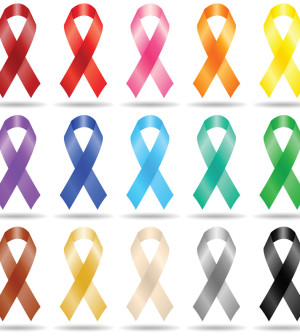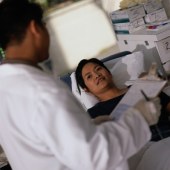- The Best Time of Day to Drink Bone Broth to Maximize Health Benefits
- 8 Ways to Increase Dopamine Naturally
- 7 Best Breads for Maintaining Stable Blood Sugar
- Gelatin vs. Collagen: Which is Best for Skin, Nails, and Joints?
- The Long-Term Effects of Daily Turmeric Supplements on Liver Health
- Could Your Grocery Store Meat Be Causing Recurring UTIs?
- Are You Making This Expensive Thermostat Error This Winter?
- Recognizing the Signs of Hypothyroidism
- 10 Strategies to Overcome Insomnia
- Could Artificial Sweeteners Be Aging the Brain Faster?
Late-Stage Cancer Diagnosis More Likely in Uninsured Teens, Young Adults


Teens and young adults who don’t have health insurance are much more likely to be diagnosed with advanced forms of cancer than other young people who do have medical coverage, according to new research.
Late-stage cancer is more expensive and more difficult to treat, the study authors pointed out.
The research, conducted by the American Cancer Society, indicated that adolescents and young adults have benefitted the least from advancements that have been made in cancer diagnosis and treatment. The researchers suggested that this is something that could be corrected.
“The findings suggest that policies such as the Affordable Care Act that increase the number of people in America with health coverage will result in fewer late-stage cancer diagnoses and save lives,” Dr. Anthony Robbins, director of health services research at the society, and colleagues wrote.
In conducting the study, published in the March issue of Cancer, the investigators examined information on nearly 260,000 cancer patients ranging in age from 15 to 39.
After taking into account for the patients’ age, race/ethnicity, education and income levels, and type of hospital in which they were treated, the study found that men without insurance were 1.51 times more likely to be diagnosed with cancer that was much more advanced than patients who had private health insurance.
The discrepancy was even greater among teen girls and young women. Those who were uninsured were 1.86 times more likely to be diagnosed with advanced-stage cancer than teens and women who had medical coverage.
The uninsured patients were more often younger, male, and black or Hispanic, the study authors noted in a news release from the American Cancer Society. They were also more likely to live in the South and in areas with lower income and education levels.
Uninsured patients were also more often treated in teaching or research hospitals and not in facilities designated by the U.S. National Cancer Institute, the study findings revealed.
“We believe that this observation holds the promise of improved cancer control efforts in the [adolescent and young adult] population, after decades in which [these] patients have experienced far less victory in the ‘war on cancer’ than their younger and older counterparts,” Robbins and colleagues wrote.
“However, the success of these efforts may be directly tied to the fate of the Medicaid expansion component of the Patient Protection and Affordable Care Act, which, at the time of this writing, remains quite unclear,” they concluded.
More information
The U.S. National Cancer Institute has more about cancer health disparities.
Source: HealthDay
Copyright © 2026 HealthDay. All rights reserved.










